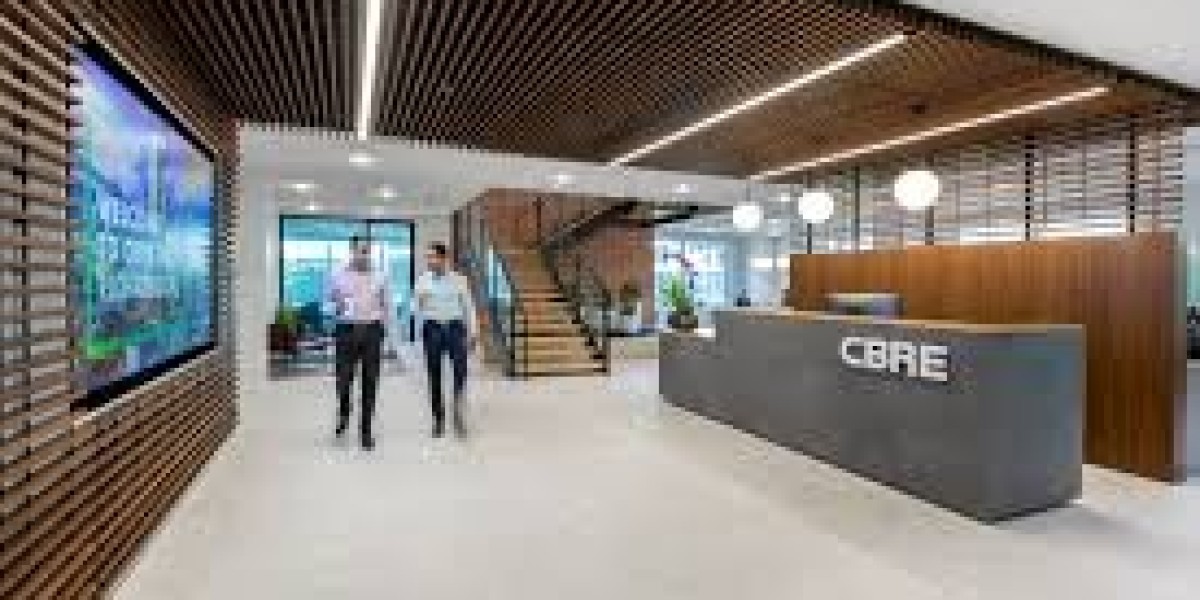1. What is a Real Estate Development Manager?
A Real Estate Development Manager is a professional responsible for overseeing the development of real estate projects, from the initial concept phase to completion. They manage the entire lifecycle of a development project, coordinating with various stakeholders such as architects, contractors, local authorities, investors, and other key personnel. Their role is crucial in ensuring that projects are executed efficiently, meet regulatory requirements, and align with the business goals of the developers or investors.
The key responsibilities of a Real Estate Development Manager include:
Project Planning: Developing a clear and comprehensive plan that outlines the objectives, timelines, and financial requirements for the project.
Budget Management: Ensuring that the project stays within budget and identifying cost-saving opportunities.
Stakeholder Communication: Acting as the primary point of contact between various stakeholders, ensuring everyone is aligned with the project’s goals.
Risk Management: Identifying potential risks and implementing strategies to mitigate them.
Regulatory Compliance: Ensuring that the project complies with all local zoning laws, environmental regulations, and building codes.
Quality Assurance: Overseeing the construction process to ensure that the final product meets quality standards and is delivered on time.
Real estate development managers are often involved in a variety of projects, from residential and commercial buildings to mixed-use developments and large-scale infrastructure projects.
2. The Responsibilities of a Real Estate Development Manager
A Real Estate Development Manager wears many hats, performing a diverse range of tasks throughout the development process. Here is an in-depth look at their key responsibilities:
2.1. Project Conceptualization and Feasibility Studies
The development manager plays an integral role in the early stages of a project, working with stakeholders to define the concept and goals of the development. They conduct feasibility studies to assess the viability of a project, including market analysis, financial projections, and risk assessments. This stage involves:
Market Research: Analyzing the demand for specific types of real estate in the target location and evaluating potential returns on investment.
Financial Modeling: Creating financial projections to ensure that the project will be profitable, factoring in construction costs, operational expenses, and expected revenue.
Site Selection: Identifying and evaluating potential sites for development, considering location, accessibility, and zoning regulations.
Regulatory and Environmental Considerations: Understanding the local laws, zoning requirements, and environmental factors that may affect the project.
2.2. Budgeting and Financial Management
Budgeting is a core responsibility of the development manager. They are tasked with ensuring that the project stays on budget throughout its lifecycle. This involves:
Securing Funding: Working with investors and financial institutions to secure the necessary funding for the project.
Cost Estimation: Preparing detailed cost estimates for all stages of the project, including land acquisition, construction, and marketing.
Cost Control: Monitoring expenses throughout the project to ensure that they do not exceed the budget. If there are any discrepancies, the development manager must identify solutions to address them.
2.3. Design and Construction Oversight
Once the project is approved and funding is secured, the development manager oversees the design and construction process. They work closely with architects, engineers, and contractors to ensure that the project aligns with the original vision. This phase includes:
Project Design: Collaborating with architects and designers to create plans that meet the functional, aesthetic, and regulatory requirements of the development.
Hiring Contractors: Selecting contractors and subcontractors for various aspects of the construction process, from excavation to electrical work.
Construction Monitoring: Overseeing the construction process to ensure it progresses as planned, monitoring timelines, quality, and safety standards.
Quality Control: Ensuring that the construction meets the required specifications and industry standards.
2.4. Stakeholder Management
Effective communication is vital for a Real Estate Development Manager, as they must coordinate between a range of stakeholders. These may include developers, investors, tenants, government authorities, and contractors. Their role involves:
Investor Relations: Keeping investors updated on the project’s progress, addressing any concerns they may have, and ensuring that their interests are protected.
Government Liaison: Interfacing with local authorities to secure permits, approvals, and ensure compliance with zoning and building regulations.
Tenant Engagement: If the development is intended for commercial or residential leasing, the manager may be involved in attracting and negotiating with potential tenants.
2.5. Risk Management and Problem-Solving
Real estate development projects come with inherent risks, such as market fluctuations, construction delays, or unforeseen environmental challenges. The development manager is responsible for identifying potential risks early in the process and implementing strategies to mitigate them. This includes:
Risk Analysis: Assessing potential risks that may impact the project, including economic downturns, changes in regulations, or natural disasters.
Contingency Planning: Developing contingency plans to address unforeseen challenges and ensure that the project remains on track.
Problem Resolution: Addressing any issues that arise during the development process and making necessary adjustments to keep the project moving forward.
2.6. Marketing and Leasing (if applicable)
Once the development is complete or nearing completion, the Real Estate Development Manager may oversee the marketing and leasing phase, which includes:
Branding and Marketing: Working with marketing teams to create promotional materials and campaigns that attract potential buyers or tenants.
Leasing Strategy: Developing a leasing strategy that outlines pricing, terms, and conditions for tenants.
Sales and Leasing Negotiations: Negotiating terms with prospective buyers or tenants to ensure the development’s financial success.
3. Skills and Qualities of a Real Estate Development Manager
The role of a Real Estate Development Manager requires a diverse set of skills and qualities. Here are some of the most important:
Project Management: Strong project management skills are essential to oversee every phase of the development process, ensuring that the project stays on track and within budget.
Financial Acumen: A solid understanding of financial modeling, budgeting, and cost control is critical for managing large-scale projects.
Negotiation Skills: The ability to negotiate with contractors, investors, tenants, and government officials is crucial for ensuring the success of the project.
Leadership: A development manager must lead teams effectively, coordinate with various stakeholders, and inspire confidence in investors and partners.
Attention to Detail: The ability to oversee complex projects with numerous moving parts requires meticulous attention to detail.
Problem-Solving: A Real Estate Development Manager must be able to anticipate and address challenges as they arise during the project lifecycle.
Communication: Effective communication skills are essential for managing relationships with stakeholders, team members, and external partners.
4. CBRE's Approach to Real Estate Development Management
CBRE is a global leader in commercial real estate services, and its approach to real estate development management sets it apart from competitors. CBRE’s development managers combine in-depth industry knowledge with a commitment to delivering high-quality projects that meet the needs of clients, investors, and communities.
4.1. Comprehensive Service Offering
CBRE’s real estate development services cover every stage of the project, from feasibility studies and planning to construction management and asset management. This comprehensive approach ensures that clients receive end-to-end support, reducing risks and optimizing outcomes.
4.2. Expertise Across Asset Types
CBRE has a vast portfolio of experience across various asset types, including office buildings, residential complexes, retail spaces, and industrial developments. Their team brings a wealth of expertise to every project, ensuring that each development is tailored to meet the specific needs of the market.
4.3. Strategic Partnerships
CBRE’s extensive network of industry partners, including investors, contractors, architects, and local authorities, allows them to build strong relationships that foster collaboration and ensure successful project delivery.
4.4. Sustainability Focus
Sustainability is at the forefront of CBRE’s development strategy. The company places a strong emphasis on environmentally responsible practices and designs, ensuring that developments not only meet the needs of today but are also future-proofed for the next generation.
5. Conclusion
Real estate development managers play a crucial role in the successful execution of development projects. From planning and budgeting to construction and marketing, they oversee every aspect of the project to ensure that it is completed on time, within budget, and to the highest standards. CBRE’s approach to real estate development management is exemplary, combining expertise, strategic partnerships, and a commitment to sustainability to deliver exceptional projects that meet the needs of their clients and communities.
Whether working on residential, commercial, or mixed-use developments, the role of a Real Estate Development Manager is integral to the success of any project. Their skills, experience, and ability to navigate complex challenges are what drive the growth and innovation in the real estate industry.








